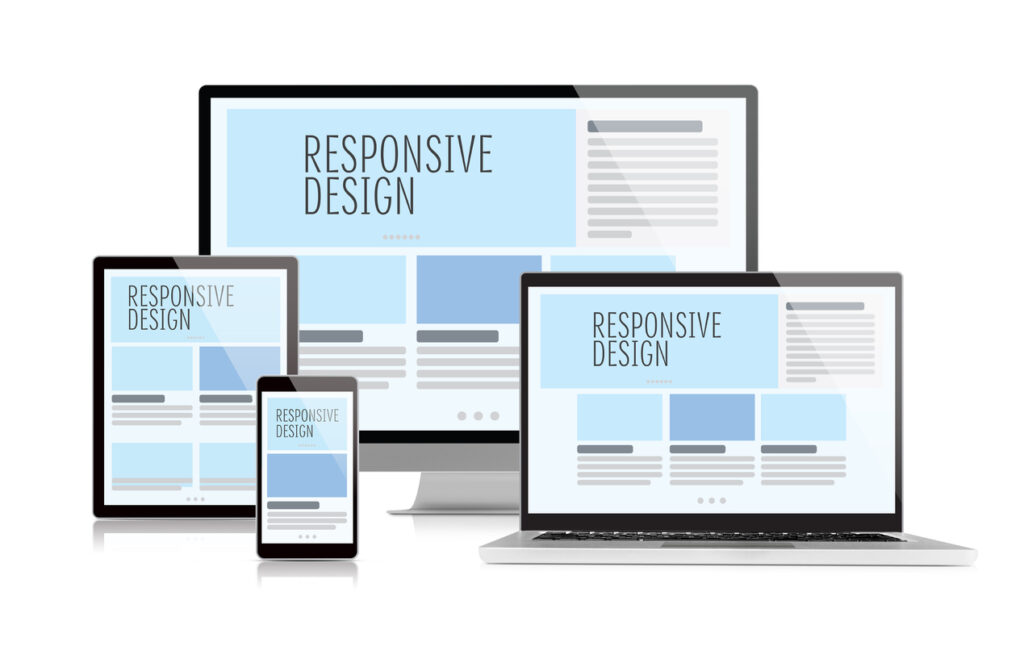News Blast
Your daily source for breaking news and insightful articles.
Responsive Wonders: Making Websites Dance Across Devices
Discover the magic of responsive design! Transform your website into a stunning, adaptable experience for every device and boost your traffic today!
Understanding Responsive Design: Key Principles and Best Practices
Responsive design is crucial in today's digital landscape, as it ensures that websites provide an optimal viewing experience across a variety of devices, from desktop computers to mobile phones. The key principle of responsive design is flexibility, allowing layouts, images, and CSS to adapt fluidly to different screen sizes. This is often achieved through the use of media queries, which enable the website to detect the device's characteristics and adjust its presentation accordingly. Implementing a responsive design can significantly enhance user experience, improve engagement, and reduce bounce rates, making it a must-have for modern web development.
When considering the best practices for responsive design, several elements should be prioritized:
- Fluid Grids: Instead of using fixed pixel widths, utilize percentage-based widths to allow for better adaptability.
- Flexible Images: Ensure images scale appropriately with CSS properties like max-width to prevent overflow and maintain layout integrity.
- Mobile-First Approach: Design for smaller screens first, then progressively enhance for larger devices to ensure essential content is prioritized.
- Testing Across Devices: Regularly test your designs on various devices and screen sizes to identify and rectify responsive issues.

Top 10 Tools for Testing Your Website's Responsiveness
In today's digital landscape, ensuring that your website is fully responsive across various devices is essential for both user experience and search engine optimization (SEO). Responsiveness refers to how well a website adapts its layout and content to fit different screen sizes, from desktops to smartphones. To help you identify potential issues and enhance your site's responsiveness, we've compiled a list of the Top 10 Tools for Testing Your Website's Responsiveness.
- Google's Mobile-Friendly Test: An easy-to-use tool that checks if your website is mobile-friendly and provides suggestions for improvement.
- Responsive Design Checker: This tool allows you to input your URL and preview how your site looks on various devices and screen sizes.
- BrowserStack: Offers live testing on real devices and browsers, ensuring comprehensive responsiveness testing.
- Screenfly: A simple tool to simulate how your website appears on different devices, from televisions to smartphones.
- Viewport Resizer: A browser extension that resizes your browser window to test responsiveness on the fly.
- Adobe Dreamweaver: Provides a responsive design preview feature that helps you visualize how your site looks across devices.
- Responsinator: Checks your website on popular device resolutions to give you a quick overview of its responsiveness.
- W3C Mobile Ok Checker: Validates your site's markup and ensures it meets mobile web standards.
- Chrome DevTools: Excellent for developers, this built-in feature allows you to simulate various devices and inspect the responsive behavior.
- Test My Site: A tool that not only tests for responsiveness but also evaluates performance and provides actionable insights.
Why Mobile Optimization is Crucial for Your Website's Success?
Mobile optimization is no longer an option but a necessity for your website's success. With over half of all web traffic coming from mobile devices, your site must provide a seamless experience for users on their smartphones or tablets. A mobile-optimized website enhances user experience, ensuring that visitors can easily navigate your content without the frustration of pinch-and-zoom. In fact, studies show that a responsive design can lead to a significant decrease in bounce rates, meaning more potential customers are likely to engage with your site and convert.
Furthermore, mobile optimization is critical for your site's search engine ranking. Search engines like Google use mobile-friendliness as a key ranking factor. If your website is not optimized for mobile, you risk falling behind competitors who prioritize this essential aspect of web design. To summarize:
- Improved user experience
- Reduced bounce rates
- Higher search engine rankings